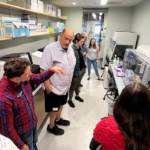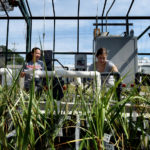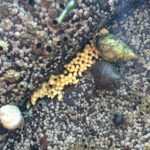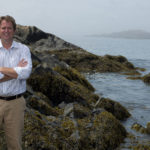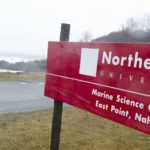About Geoffrey Trussell
My research program currently focuses on a number of important issues in evolutionary, community and ecosystem ecology. These interests are being explored in a number of systems including rocky intertidal shores, old fields, and freshwater amphibian communities. In a nutshell, I think interesting questions are far more important than interesting systems but, of course, if one can have both then things are that much better! Much of our current work emphasizes the evolutionary and ecological significance of predation risk, with an emphasis on the evolution of phenotypic plasticity and inducible defenses, the ecological significance of nonconsumptive predator effects, and the influence of trait-mediated indirect interactions on community dynamic and ecosystem function. However, we also spend a good amount of time on other topics including the factors influencing invasive and exotic plant diversity in terrestrial systems, the influence of species diversity on ecosystem function, and the impact of climate change on natural food webs.
My research is highly collaborative and involves some outstanding colleagues including Oswald Schmitz (Yale University), Barney Luttbeg (Oklahoma State University), Matthew Bracken (Northeastern University), Steve Vollmer (Northeastern University), Lee Smee (Texas A&M), Jeremy Long (San Diego State University) and Osamu Kishida (Hokkaido University).
Research in the Trussell Lab is focused on the ecology and evolution of marine communties, in particular the role of species interactions in shaping communities. This work involves laboratory projects and field research that spans the breadth of habitats in the Gulf of Maine.
Publications:
-
Moving beyond linear food chains: trait-mediated indirect interactions in a rocky intertidal food web.Read
-
Refuge quality impacts the strength of nonconsumptive effects on prey.Read
-
Connecting prey traits and adaptation to communities and ecosystems.Read
-
Parental effects enhance risk tolerance and performance in offspring.Read
-
Climate change enhances the negative effects of predation risk on an intermediate consumer.Read
-
Google ScholarRead

